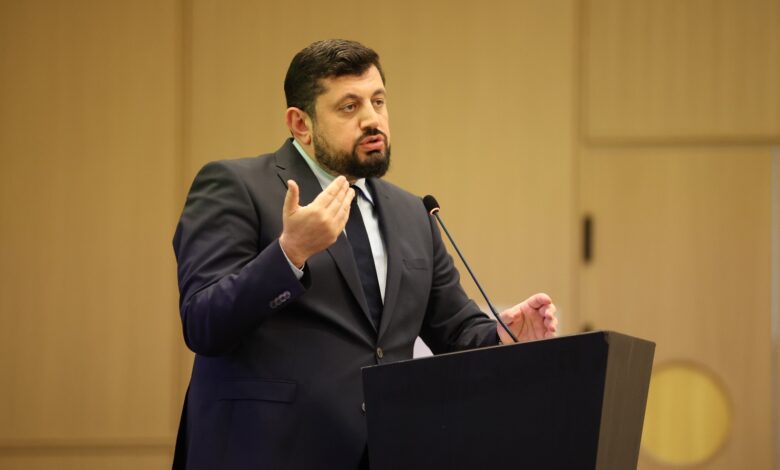
Inspected CSOs Say FARA Doesn’t Apply to Them as They Refuse to Register
Georgian civil society organizations that received inspection notices from the country’s Anti-Corruption Bureau under Georgian Dream’s version of the U.S. Foreign Agents Registration Act (FARA) say they will not register in the FARA portal, arguing the law does not apply to them.
“Neither the American FARA nor its Georgian counterpart applies to civil society organizations,” Transparency International Georgia, the country’s leading corruption watchdog, said on August 22, noting that although Georgian Dream authorities claim to have copy-pasted the American law into Georgia’s legislation, the organization’s U.S. branch is not registered under FARA.
Seven organizations, including TI-Georgia, received FARA inspection notices from the Anti-Corruption Bureau in the past weeks, warning of criminal liability if they fail to register as an “agent of a foreign principal” under the GD-adopted FARA. Alleging that their work “could constitute political activity,” the Bureau asked the organizations to explain why they had not registered on time, giving them 10 days to submit a response.
FARA, which took effect in May, is the second foreign agents law adopted by Georgian Dream. The ambiguous law, which Georgian Dream claims to have copied from the 1938 American FARA, requires foreign-funded individuals and entities engaged in political activities on behalf of a foreign principal to register in the FARA registry, with non-compliance punishable by fines, prison terms of up to five years, or both. The August inspection marked the first instance of strict enforcement of such laws, as the previous version, though still formally in force, was effectively shelved.
Social Justice Center (SJC), another group under inspection, argues that the U.S. FARA, just like its Georgian analogue, establishes that the “mere fact that an organization’s activities may be related to political issues does not in itself constitute grounds for designating it as an agent of a foreign principal.”
In a letter to the bureau, SJC argues that its activities are “determined internally” and that funds are only a “tool” to carry them out. The group stresses that during project implementation, its correspondence with donors is limited to financial accountability and information exchange, saying this “does not affect the substance of organizational activities.” It adds that “grant-related activities are not connected to the support or lobbying of foreign political parties.”
The organization said it would not fall under FARA if the law were interpreted in a “reasonable and good-faith” manner. It noted that in the bureau’s warning letter, the grounds for its alleged “political activity” were its public statement, but those were not substantiated. One of the statements cited was SJC’s saying that the “Ivanishvili government is fully responsible for creating risks to visa-free travel.”
The Media Development Foundation, another inspected CSO, also responded with a letter to the bureau’s request, outlining its track record. That includes, among other efforts, media literacy programs that have trained thousands of Georgians, especially school and university students and teachers, as well as educational resources it has developed and its work combating disinformation, particularly from Russia.
“MDF’s activities – for which the organization receives funding from the EU, the governments of the EU member states and other Western donors – are transparent and serve only the interests of the Georgian people, in line with the Georgian government’s declared goals outlined in legislation and policy documents,” the organization said in the letter.
All seven organizations now ordered to register under FARA had earlier, in June, been approached by the bureau for separate inspections – that time, though, under different laws. Those earlier inspection requests, which they also defied, demanded extensive information about their activities, including sensitive details about their beneficiaries.
The organizations deem the Anti-Corruption Bureau’s inspections unlawful and say Georgian Dream is cracking down on them. Key watchdogs have vowed not to register also citing the local stigma associated with the term “agent,” which is often understood as “spy” or “traitor.” Leaders of Georgian Dream have repeatedly labeled their critics as “foreign agents.”
Also Read: